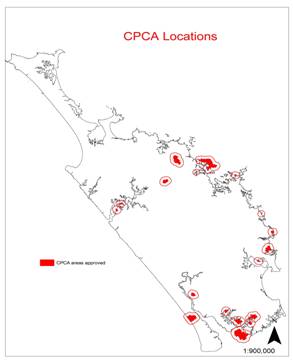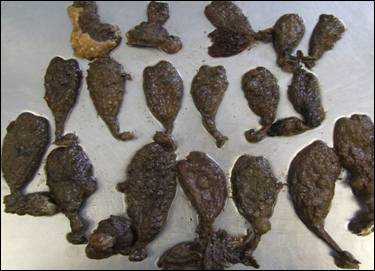Regional Pest Management Strategies
Pest species in Northland are listed in the Regional Pest Management Strategies (RPMS), which are published by the Council. There are currently 25 different strategies in operation. These strategies provide guidance on how pest plants and animals should be managed in the region.
During the 2008-09 financial year, the Council began the process of reviewing the RPMS and decided to merge the existing 25 documents into 3 – marine pests, animal pests and pest plants.
The review highlighted the growing impact that plant and animal pests (particularly weeds) are having on our region and a number of additional plant and animal species were added.
The proposed RPMS places greater emphasis on investigating new options for controlling pest plants, such as biological control, and also increasing the scale of pest control areas to link existing community projects (such as Community Pest Control Areas), to protect biodiversity on private land in Northland.

Map: Existing Community Pest Control Areas in Northland
The proposed plant RPMS recognises Kauri dieback disease as a potentially serious pathogen for Northland and proposes that the Council continue to work with the joint agency response team to reduce the spread of the disease.
Tactics to address the impact of pest insects, like the fruit drilling guava moth and tropical grass webworm, are also addressed in the revised document.
The risks that wild deer and feral pigs pose to the region have been recognised in the animal RPMS. In addition, species such as red eared slider and long necked turtles (currently sold by some pet shops) have been included in a ‘risk assessment' category. The potential impact of these animals on native freshwater species if released into the wild is predicted to be high.
In May 2009, a discussion document on the proposed marine RPMS was released and feedback was received from 40 different people/organisations. Consultation on all three documents will continue in 2009-2010.

Photo: Styela clava (sea squirt) is a recent maritime invader
